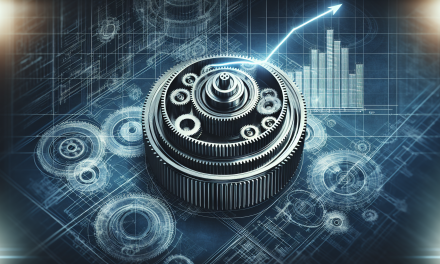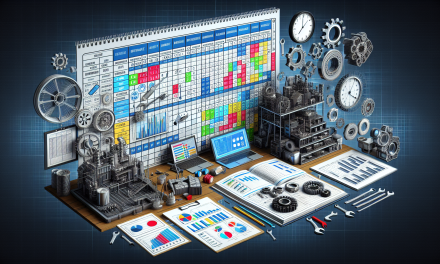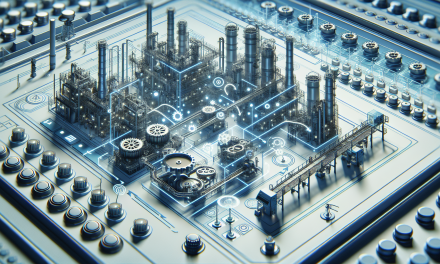Table of Contents
- Understanding Building Services Maintenance
- The Importance of Effective Management
- Essential Skills and Techniques
- Modern Approaches to Maintenance
- Predictive Maintenance Strategies
- Road and Infrastructure Maintenance Training
- Troubleshooting AC Electrical Motors
- Mastering Heat Transfer for Efficiency
- Rotating Equipment Optimization
- FAQs
- Conclusion
Understanding Building Services Maintenance
Building services maintenance involves several essential elements that ensure facilities operate smoothly and efficiently. With a focus on plumbing, HVAC, electrical systems, and more, maintenance teams ensure that buildings provide a safe and comfortable environment for everyone. Ultimately, effective management of these services leads to cost savings, reduced downtime, and enhanced performance.
The Importance of Effective Management
Effective management of building services is key for any organization. Organizations experience fewer breakdowns and system failures when a proactive approach is taken. Moreover, managing building services involves understanding performance metrics, which enables teams to make informed decisions. Consequently, reliable service enhances a building’s longevity and increases property value.
Empowering Facilities with Proactive Maintenance
One of the most critical aspects of effective management includes empowering facilities through proactive maintenance strategies. By being proactive rather than reactive, teams can anticipate problems before they escalate. Furthermore, developing a maintenance schedule that prioritizes routine checks significantly minimizes disruptions. This can include everything from regularly checking air conditioning filters to conducting thorough inspections of electrical systems.
Essential Skills and Techniques
Several vital skills are required for professionals in building services maintenance. These skills enhance practical understanding, enabling individuals to apply techniques effectively.
Technical Proficiency
Having strong technical skills is essential. This includes proficiency in diagnosing issues with mechanical and electrical systems, ensuring that any operational problems can be quickly identified and rectified.
Communication Skills
Strong communication skills play a significant role in maintenance management. You can effectively communicate with different stakeholders, from service staff to upper management, by cultivating these skills. This interaction not only ensures that everyone is on the same page but also fosters a collaborative environment.
Modern Approaches to Maintenance
In recent years, the landscape of building services maintenance has evolved significantly. Modern technology and practices have introduced innovative approaches that improve efficiency and reduce costs.
Integration of Technology
Integrating technology into maintenance processes enhances the management of building services. Simple tools like maintenance management software allow for better scheduling and tracking of maintenance tasks. Likewise, the adoption of the Internet of Things (IoT) leads to smart building solutions that can monitor system performance in real-time.
Building Services Maintenance & Management Training Course
Understanding how to leverage these modern tools is crucial for success in the field. Training opportunities, like the Building Services Maintenance & Management Training Course, provide valuable insights into implementing these technologies effectively.
Predictive Maintenance Strategies
Predictive maintenance involves techniques that forecast when maintenance should be performed. This approach helps avert unexpected breakdowns while optimizing maintenance schedules based on actual use rather than set intervals.
Understanding Machinery Failure: Vibration Issues
Businesses benefit greatly from recognizing the signs of machinery failure early on. Vibration analysis, for example, plays a crucial role in predictive maintenance, as it identifies potential issues before they lead to catastrophic failures. More about these concepts can be explored in the article on Understanding Machinery Failure: Vibration Issues and Predictive Maintenance Strategies.
Road and Infrastructure Maintenance Training
Maintaining roads and other infrastructure is vital for public safety and accessibility. In an ever-evolving urban landscape, understanding road maintenance will ensure that transport systems remain operational and safe.
For relevant insights, consider the article on Unlocking the Secrets of Effective Road and Infrastructure Maintenance Training.
Troubleshooting AC Electrical Motors
Electrical motors play a significant role in many systems. Thus, knowing how to troubleshoot and maintain them is essential for any maintenance professional.
The comprehensive guide on Troubleshooting Maintenance and Protection of AC Electrical Motors and Drives offers valuable techniques that enable professionals to extend the life of these critical systems.
Mastering Heat Transfer for Efficiency
Heat transfer management stands at the forefront of maintaining efficient building services. Professionals must ensure systems operate effectively regarding temperature control and energy consumption.
For advanced techniques in this area, refer to the article on Mastering Heat Transfer in the Process Industry: Innovative Augmentation Techniques for Optimal Efficiency.
Rotating Equipment Optimization
Optimizing rotating equipment forms part of a comprehensive maintenance strategy. By applying unique strategies for reliability improvement, maintenance teams can address common failures and enhance operational efficiency.
To understand these strategies better, check out the article on Mastering Rotating Equipment: Optimization Strategies for Continuous Reliability Improvement.
FAQs
What is the role of building services maintenance?
The role involves ensuring all systems function correctly, which helps prevent breakdowns and maintains a safe environment for occupants.
How can technology improve building services management?
Technology improves management through tools for scheduling, monitoring, and analyzing building performance to enhance maintenance efficiency.
What are some common maintenance strategies?
Common strategies include preventive maintenance, predictive maintenance, and reactive maintenance, each offering different benefits.
Conclusion
Building services maintenance and management represent vital components of any successful facility management strategy. By focusing on proactive measures, empowering teams through training, and incorporating innovative technologies, organizations can significantly improve their operational efficiency. Understanding the intricacies of maintenance, leveraging strategic techniques, and utilizing accessible resources will position facilities for a sustainable future.





